
Raï, sometimes written rai, is a form of Algerian folk music that dates back to the 1920s. Singers of Raï are called cheb as opposed to sheikh, the name given to Chaabi singers. The tradition arose in the city of Oran, primarily among the poor. Traditionally sung by men, by the end of the 20th century, female singers had become common. The lyrics of Raï have concerned social issues such as disease and the policing of European colonies that affected native populations.
North Africa has contributed considerably to popular music, especially Egyptian classical music alongside el Gil, Algerian raï and Chaabi. The broad region is sometimes called Maghreb, and the term Maghrebian music is in use. For a variety of reasons Libya does not have as extensive nor popular a tradition as its neighbours. Folk music abounds, however, despite frequent condemnation and suppression from governments, existing in multiple forms across the region—the Berbers, Sephardic Jews, Tuaregs, Copts and Nubians, for example, retain musical traditions with their ancient roots.
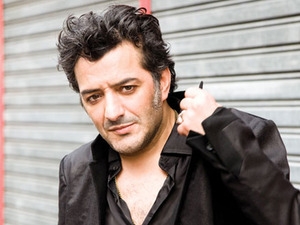
Rachid Taha was an Algerian singer and activist based in France described as "sonically adventurous". His music was influenced by many different styles including rock, electronic, punk and raï.

Faudel Belloua is a French raï singer and actor of Algerian descent. He released studio albums, notably Baïda, Samra, Un Autre Soleil and Mundial Corrida and the live album 1,2,3 Soleils jointly with Khaled and Rachid Taha.
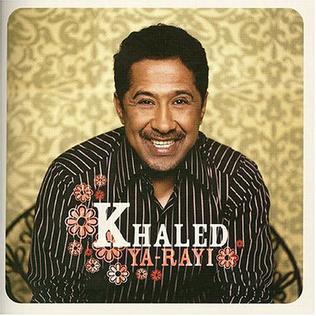
Khaled's Ya-Rayi is his fifth studio album that was first released in Europe in August 2004 by AZ Records, a label of Universal Music France, and later licensed in UK, and then reissued in United States on June 27, 2005. The European release was dubbed a "back to the roots" album, while the United States release was dubbed a "peace through music" album.

Kenza is a fourth studio album by Algerian singer-songwriter Khaled.

N'ssi N'ssi is the second studio album from Algerian raï artist Khaled, produced by Don Was and Philippe Eidel.
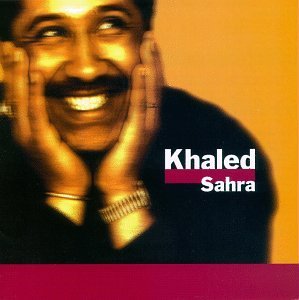
Sahra is the third studio album from Algerian raï artist Khaled, released in 1996. It was the artist's biggest production to date, being co-produced by Philippe Eidel, Don Was, Jean-Jacques Goldman and Clive Hunt, and including performances by many other singers from around the world. It features what is perhaps Khaled's most popular song, "Aïcha". Most tracks are sung in Arabic, with a notable dosage of French. "Ki Kounti" is partially sung in Spanish as it features Mexican Rock vocalist Saúl Hernández from the band Caifanes. The title track is named after Khaled's first daughter, Sarah, to whom the album is dedicated along with his wife, Samira.

"Aïcha" is a song written by French singer-songwriter Jean-Jacques Goldman, performed by Algerian raï artist Khaled. In 1996, the song was released as a single containing two versions: a French version and a bilingual version sung in both French and Arabic. The Arabic lyrics were written by Khaled. On his 1996 album Sahra, the bilingual version is featured. The song's music video, which also uses the mixed language version, was directed by Sarah Moon.

Jonatan Cerrada Moreno is a Belgian singer. He won the first season of Nouvelle Star in 2003 and represented France in the Eurovision Song Contest 2004.
Arabic hip-hop is a segment of hip hop music performed in the Arabic-speaking world. Due to variety of dialects and local genres which exist in the localities, Arabic hip-hop music may appear very diverse depending on the country of the song. Like most artists of the genre, the hip-hop artists from the Arabic-speaking world are highly influenced by American hip-hop.

"Didi" is an Arabic raï song written and performed by Algerian singer and musician Khaled, released in 1992. The song was the lead single from the singer's eponymous album Khaled.
Reda Tamni, known by his stage name Reda Taliani, is an Algerian raï singer and musician. He is a longtime resident from Aubagne, Provence, France. His music blends chaabi, raï and traditional musical styles of the Maghreb, and many of his songs depict the realities and aspirations of the Algerian youth.

Liberté is the sixth studio album by Khaled. Released in 2009, the album is Khaled's first studio album to feature original material following a five-year hiatus. The album marks a shift to a more acoustic Raï orientated sound. However, in contrast to his previous work, the album incorporates elements of Gnawa music, as seen on the track "Gnaoui. It also features Egyptian string performances recorded in Cairo. The album was recorded in the studio under live conditions to replicate the energy of his live performances.
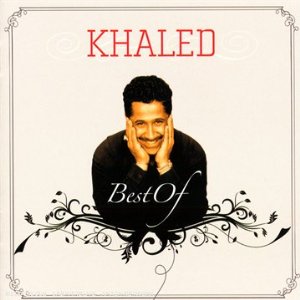
Best of Khaled is a greatest hits compilation album by Khaled.

Khaled Hadj Ibrahim, better known by his mononym Khaled, is an Algerian raï singer, musician and songwriter. He began recording in his early teens under the name Cheb Khaled.
Sawt el Atlas is a French-Moroccan ten-piece band based in Paris. Their music combines many styles, including Arabic, raï, reggae, funk, and Latin rhythms. The group features two sets of three brothers and is fronted by tenors Kamel el Habchi and Mounir Mirghani. The band first came together in the late 1980s in the city of Blois, when most of its members were teenagers or even younger. Soon they began touring through Europe, opening for the likes of Khaled, Cheb Mami, Youssou N'Dour, and Natacha Atlas. 1996 saw the release of their debut recording, Généraliser. Their sophomore effort, Donia, recorded equally in Paris and Cairo, was issued three years later. Love is the central topic of most of their songs, which feature lyrics in both Arabic and French.
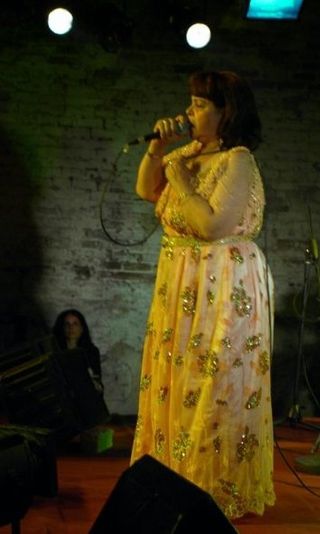
Cheikha Rabia is an Algerian singer born in Relizane in Algeria.

Blaoui Houari was an Algerian singer-songwriter, composer and conductor. Over the course of his career, he recorded over 900 songs and released over 100 albums.















